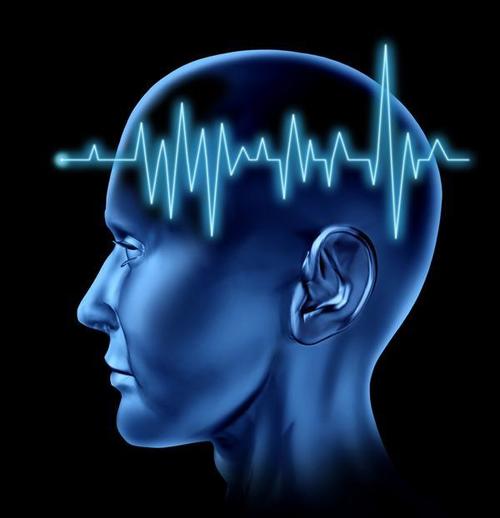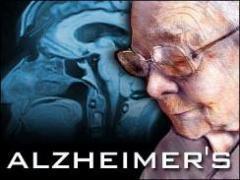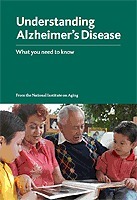 Late-life depression, occurring after age 50 years, is associated with a significantly increased risk for dementia, and in fact may be an early sign of cognitive decline, new research shows.
Late-life depression, occurring after age 50 years, is associated with a significantly increased risk for dementia, and in fact may be an early sign of cognitive decline, new research shows.
“Studies such as the Rotterdam [Scan] Study in the Netherlands have found that people who had early-life depression had a risk of Alzheimer disease in later life,” lead author Ge Li, MD, PhD, from the University of Washington, Seattle, told Medscape Medical News.
“But is depression causing dementia, or is it an early symptom of dementia? We wanted to explore the temporal relationship between the 2 conditions,” Dr. Li added.
The study is published in the September issue of the Archives of General Psychiatry.
Early Manifestation of Dementia?
The investigators used data from the Adult Changes in Thought study, a large, community-based, prospective study of people aged 65 years and older who were free of dementia at baseline, and who were followed-up every 2 years for up to 15 years.
Participants in the study were Seattle-area members of the Group Health Cooperative health maintenance organization. The study had 3 phases of enrolment.
The first cohort of 2581 participants was recruited in 1994 to1996, 811 participants were enrolled in 2000 to 2002, and another 709 participants were enrolled in 2004 to maintain a cohort of more than 2000 participants at risk for dementia in each calendar year.
Baseline depression was assessed with the Center for Epidemiologic Studies Depression Scale, and participants who scored 11 or greater were deemed to have significant depressive symptoms. The participants were also asked whether they had suffered from depression in the past.
The study showed that during a mean of 7.1 years of follow-up, 658 participants (19.3%) developed dementia.
At baseline, 321 participants (9.4%) had significant symptoms of depression, and 21.2% reported a history of depression.
After adjusting for age, sex, wave of enrolment, and educational level, the researchers found that participants who had a depression score higher than 11 had a 71% higher risk for dementia (hazard ratio [HR], 1.71; 95% confidence interval [CI], 1.37 – 2.13).
In addition, the study showed that late-life depression, occurring after the age of 50 years, was associated with an increased risk for all-cause dementia (adjusted HR, 1.46; 95% CI, 1.16 – 1.84). However, early-life depression, occurring before the age of 50 years, was not associated with dementia risk (adjusted HR, 1.10; 95% CI, 0.83 – 1.47).
“We think that depression in later life might be an early manifestation of dementia. Our results confirm that late-life depression is linked to an increased risk of dementia, so if you have a long history of depression, that is probably not causing the dementia. It is more due to something happening in later life,” said Dr. Li.
Intervention Studies the “Next Step”
By the time someone meets the criteria for dementia, the disease is in its late stages. Early diagnosis, therefore, is very important, Dr. Li added.
“If depressive symptoms could be an early sign of dementia, this raises the possibility that we might be able to intervene at an earlier stage, where we might have some impact on the outcome,” she said.
Anton P. Porteinsson, MD, William B. and Sylvia Konar professor of psychiatry at the University of Rochester School of Medicine and Dentistry, New York, agreed that treating late-life depression might be a way of slowing the progression to dementia.
“We need to do observational clinical trials, but it seems to make sense. It’s pretty clear that depression and dementia, the most common neuropsychiatric disorders in the elderly, often co-occur, and this co-occurrence exceeds chance,” he told Medscape Medical News. “Depression clearly signals a higher risk of developing both mild cognitive impairment and dementia.”
Dr. Porteinsson pointed out that in the Alzheimer’s Disease Neuroimaging Initiative study, the presence of depressive symptoms correlated with brain atrophy and white matter damage in the brain.
“We don’t know the mechanism and the causative factors, but the correlation is there,” he said.
Also not yet known is whether treating the depression will mitigate the risk of progressing to dementia.
“That’s going to be the next thing for us to discover. Certainly there are short-term benefits in terms of quality of life, but are there also going to be long-term benefits in terms of better disease load and dementia risk? This is what we need to discover.”
Dr. Li and Dr. Porteinsson have disclosed no relevant financial relationships.
Like this:
Like Loading...






